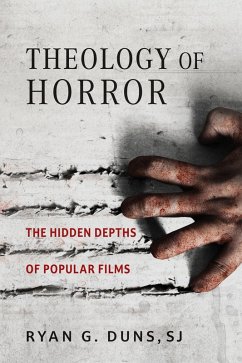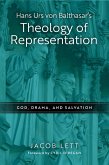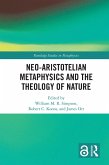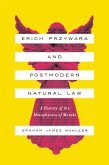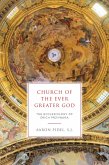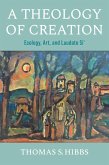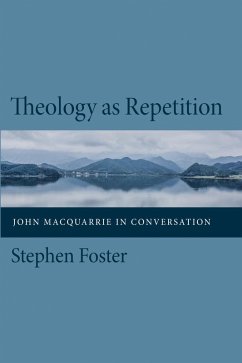Theology of Horror explores the dark reaches of popular horror films, bringing to light their implicit theological and philosophical themes.
Horror films scare and entertain us, but there's more to be found in their narratives than simple thrills. Within their shadows, an attentive viewer can glimpse unexpected flashes of orthodox Christian belief. In Theology of Horror, Ryan G. Duns, SJ, invites readers to undertake an unconventional pilgrimage in search of these buried theological insights.
Duns uses fifteen classic and contemporary horror films-including The Blair Witch Project, A Nightmare on Elm Street, Candyman, and The Purge-as doorways to deeper reflection. Each chapter focuses on a single film, teasing out its implicit philosophical and theological themes. As the reader journeys through the text, a surprisingly robust theological worldview begins to take shape as glimmers of divine light emerge from the darkness. Engaging and accessible, Theology of Horror proves that, rather than being the domain of nihilists or atheists, the horror film genre can be an opportunity for reflecting on "things visible and invisible," as Christians profess in the Nicene Creed.
Horror films scare and entertain us, but there's more to be found in their narratives than simple thrills. Within their shadows, an attentive viewer can glimpse unexpected flashes of orthodox Christian belief. In Theology of Horror, Ryan G. Duns, SJ, invites readers to undertake an unconventional pilgrimage in search of these buried theological insights.
Duns uses fifteen classic and contemporary horror films-including The Blair Witch Project, A Nightmare on Elm Street, Candyman, and The Purge-as doorways to deeper reflection. Each chapter focuses on a single film, teasing out its implicit philosophical and theological themes. As the reader journeys through the text, a surprisingly robust theological worldview begins to take shape as glimmers of divine light emerge from the darkness. Engaging and accessible, Theology of Horror proves that, rather than being the domain of nihilists or atheists, the horror film genre can be an opportunity for reflecting on "things visible and invisible," as Christians profess in the Nicene Creed.
Dieser Download kann aus rechtlichen Gründen nur mit Rechnungsadresse in A, D ausgeliefert werden.

